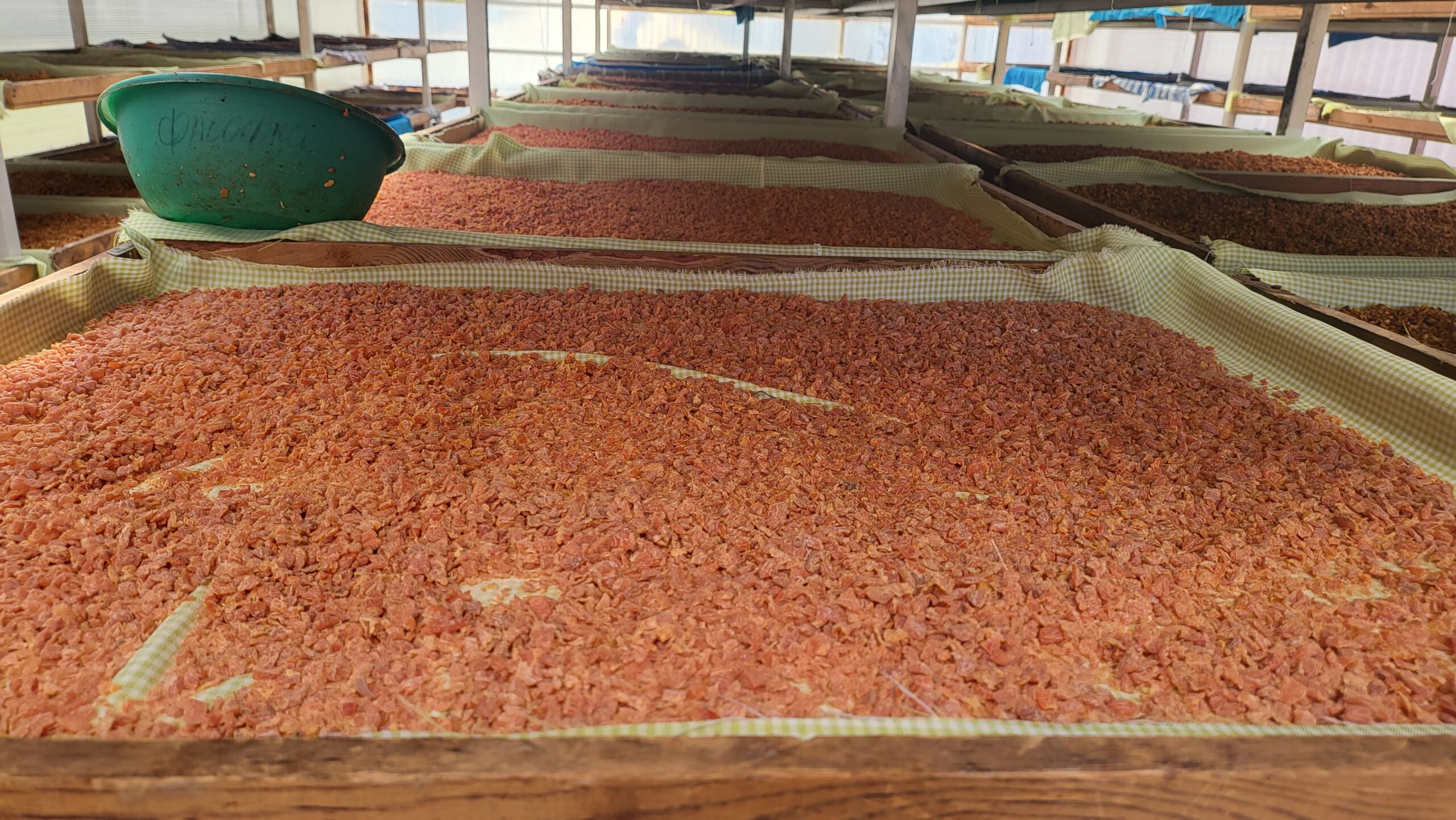
The USAID-funded Market Driven Rural Development (MDRD) Activity’s recent intervention in Tajikistan led to a remarkable achievement for a local dried fruits processing company with the potential to further change the local market. Mevai Zarrin (MZ) has processed and exported dried fruits for years from Isfara. Its story exemplifies how a targeted intervention, and the application of technical knowledge, can contribute to sustainable development in remote areas.
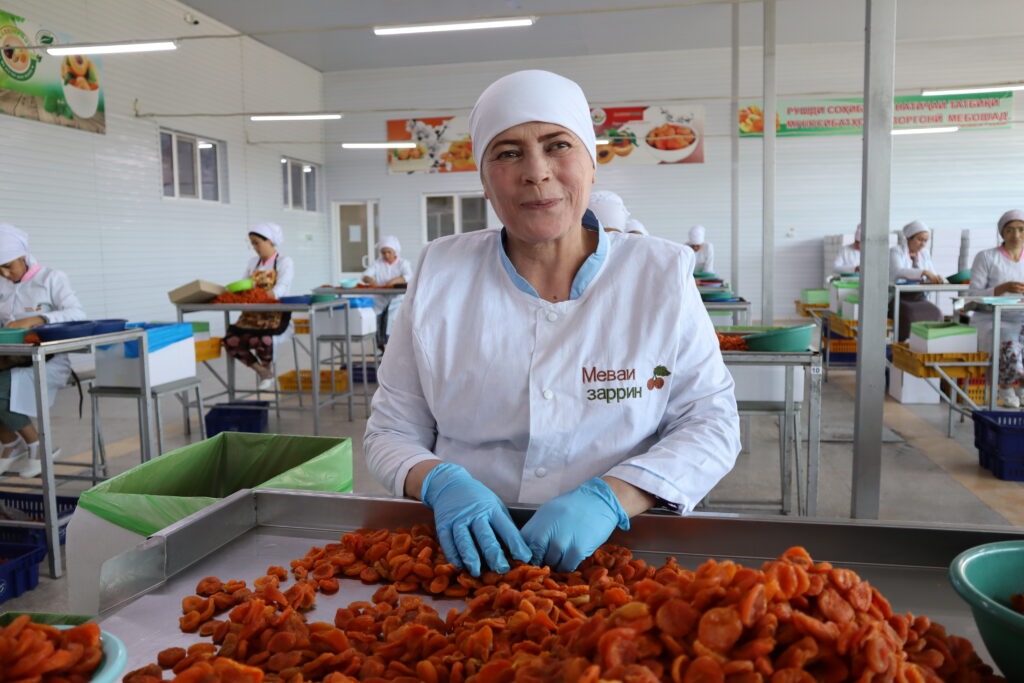
Once upon a time in Isfara
Tajikistan ranks among the top 12 exporters of dried apricots worldwide. Approximately 10% of the global production of apricots is concentrated in Sughd province, where further processing takes place in Isfara.
Though a remote region located in an unstable border area, Isfara is rich in apricot orchards and is known for dried fruits processing throughout Central Asia. The small Tajik city fills countless Russian markets’ shelves with dried fruits despite being located far away from the hustle and bustle of urban areas.
When in Isfara, you would be awe-stricken by the vast apricot orchards that stretch as far as the eye can see. The sweet aroma of ripe apricots fills the air, creating an atmosphere brimming with the promise of growth and prosperity. Local companies understand quite well that they can turn orange apricots into green dollars, red rubles, and purple euros. Eying larger markets in Europe and beyond, local companies are eager to unlock their tremendous potential for growth. With the right guidance and implementation of modern techniques, they can truly make a mark in the dried fruits industry.
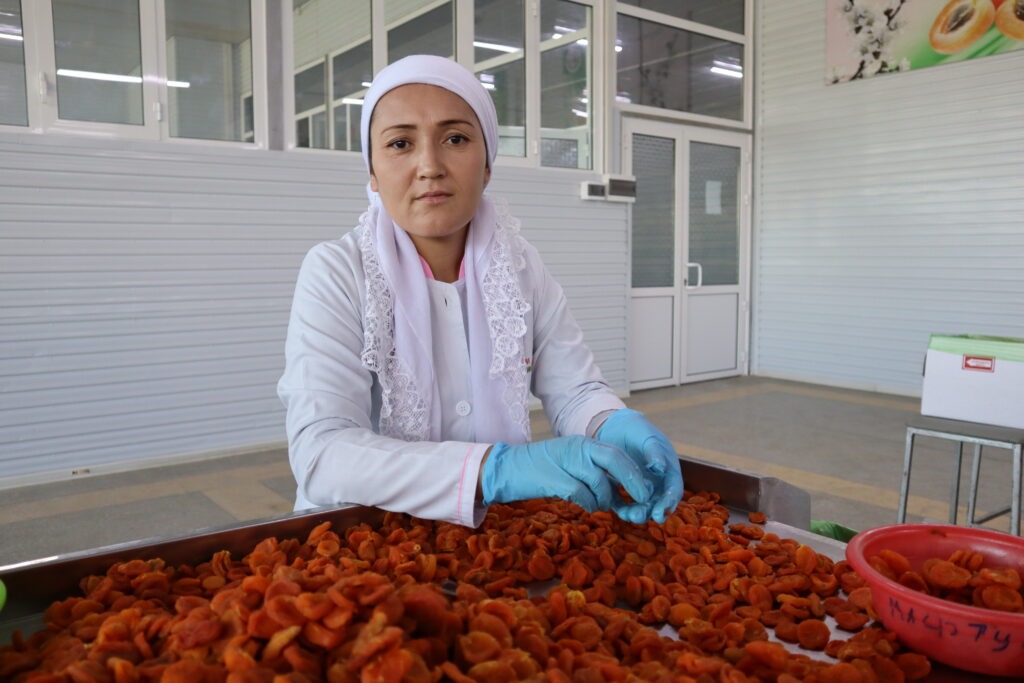
Recognizing this opportunity and responding to local calls, the USAID-funded MDRD brought well-known food safety expert, Clifford Wener, from the University of Illinois to Tajikistan on a volunteer assignment to collaborate with and provide valuable insights to Isfara processors.
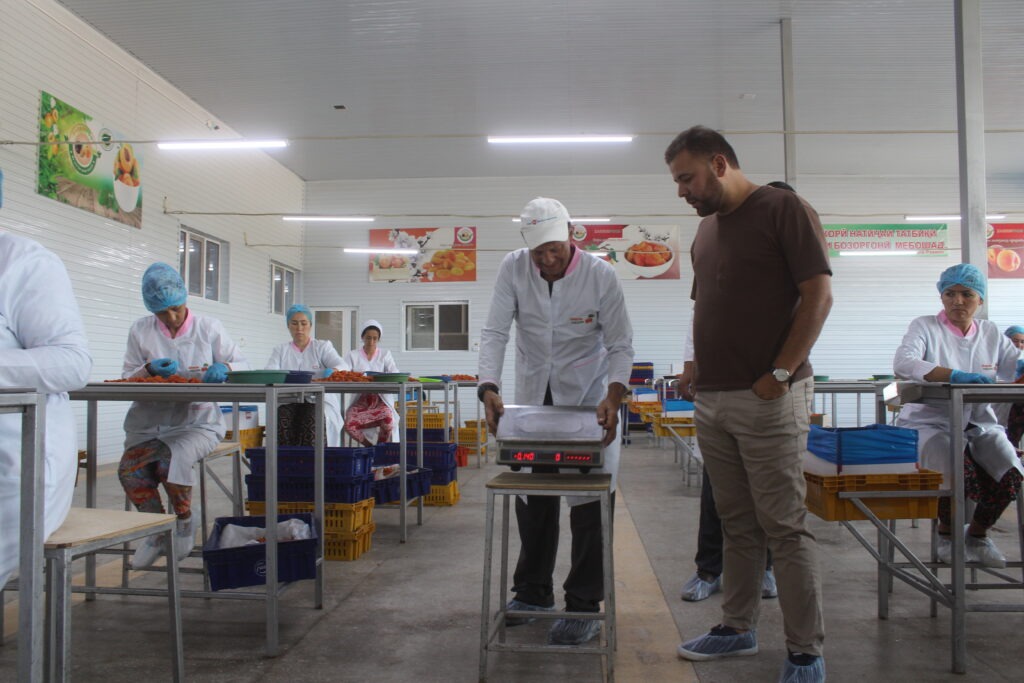
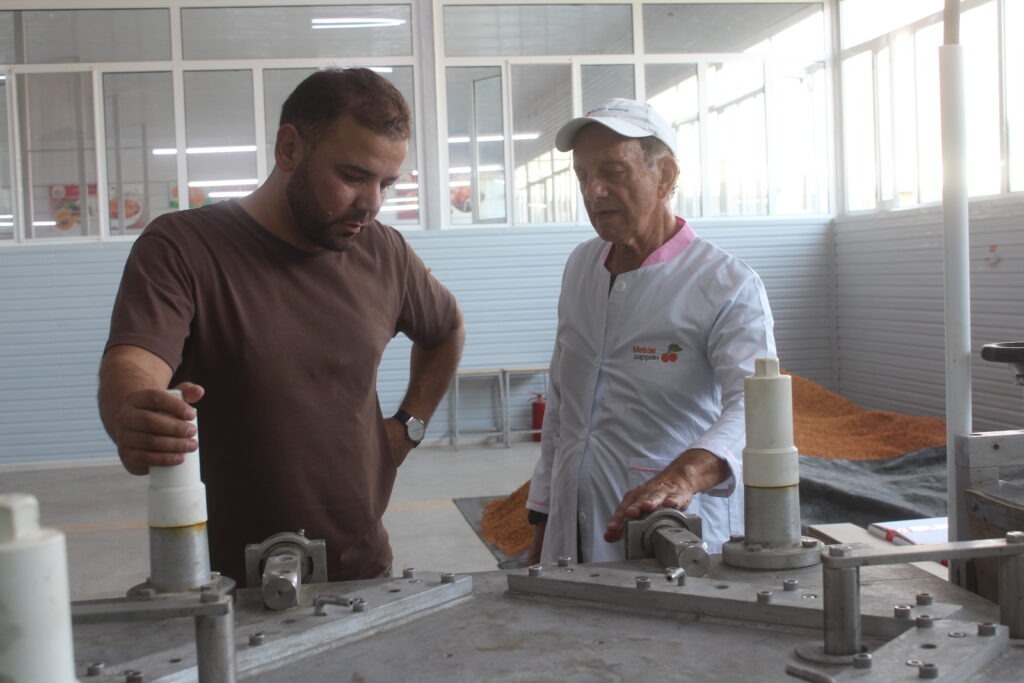
“I engaged with MZ management and employees, immersing fully in understanding the company’s processes and challenges. It was clear that while the company had the potential for success, it lacked certain safety measures that would enhance the quality of its products.”
Clifford Wener
Drawing upon his extensive knowledge, Wener thoroughly evaluated every aspect of the company’s operations. From pre-harvest practices to post-harvest storage, every element was scrutinized to identify areas for improvement. After two weeks of intensive assessments, he presented the findings and recommendations to the company’s management.
Wash hands and count money
It was an all-encompassing approach aimed at revolutionizing the company’s operations and paving the way for its success.
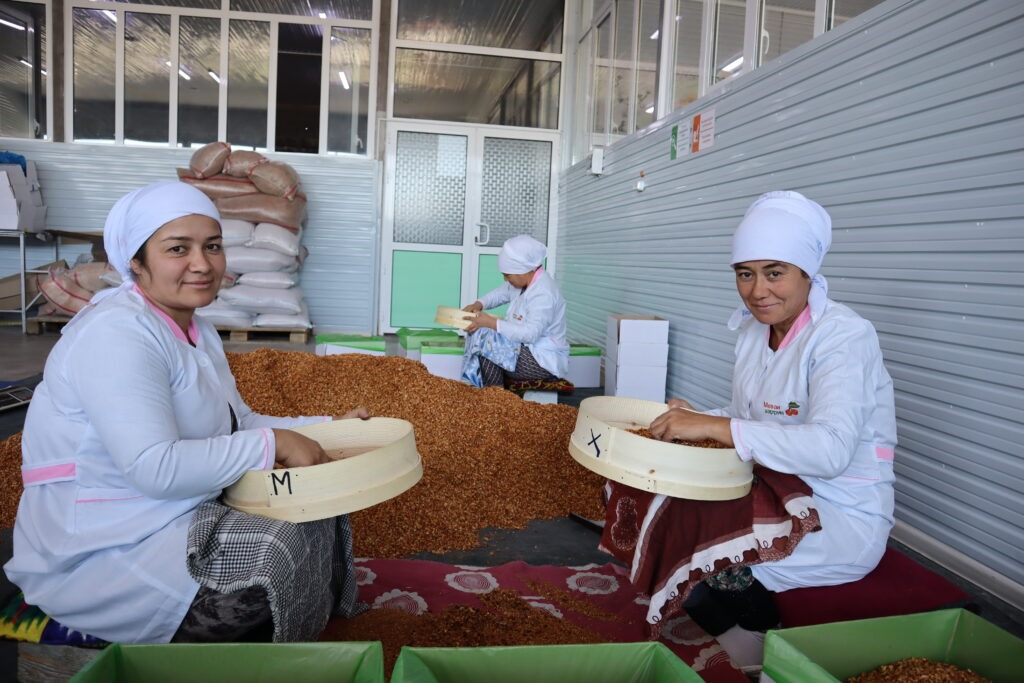
Inspired by the expert’s passion and unwavering belief in their potential, the company’s management enthusiastically embraced the proposed changes. In less than three months after Wener’s departure, MZ displayed an unyielding commitment and invested more than USD 40,000 to transform their traditional methods into a modern, efficient, and competitive enterprise.
“Our previous working process was time-consuming and often resulted in significant product loss. Having an expert visit our facility and provide us advice and guidance has truly been transformative for our company.”
Bahodur Amonulloev, MZ Owner and Director General
MZ invested in wooden pallets to keep their inventory off the ground; this alone has resulted in up to 70 percent reduction of processing losses.
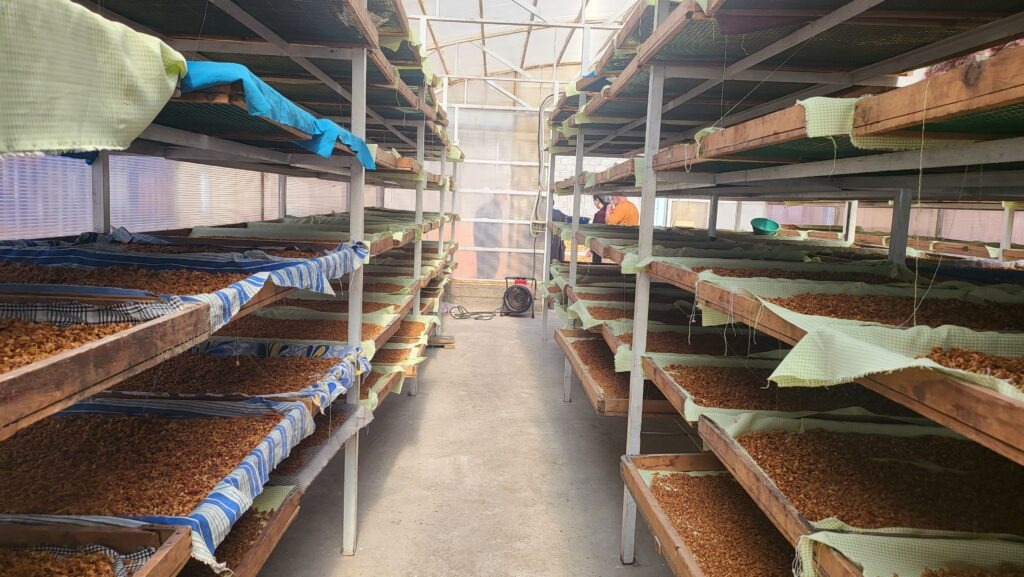
It set up a sewage system to improve sanitation in the workplace.
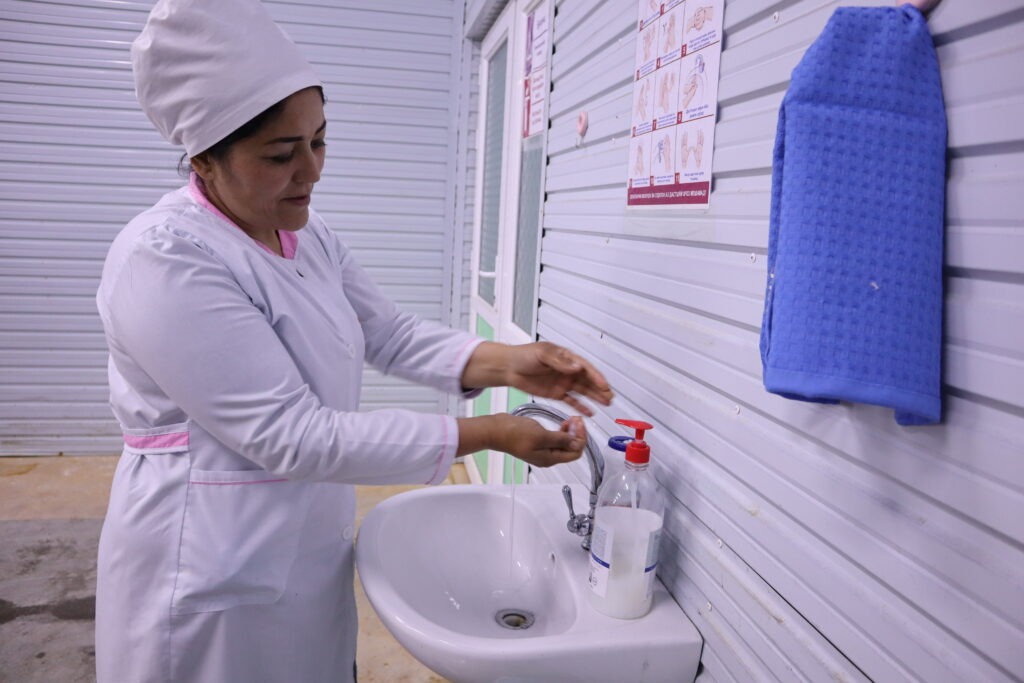
Recognizing how it is important to keep workers motivated, MZ made changes to the working environment for the workers to increase comfort; higher and better chairs and tables, brighter lights, and renovated the washroom facilities, including the installation of liquid soap and hand towels.
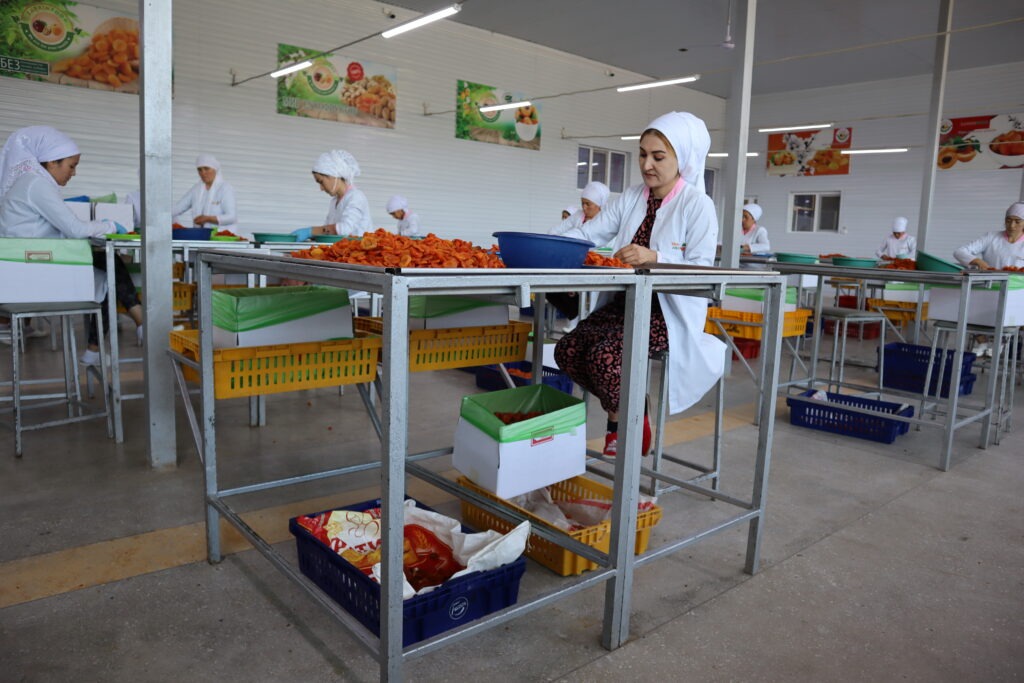
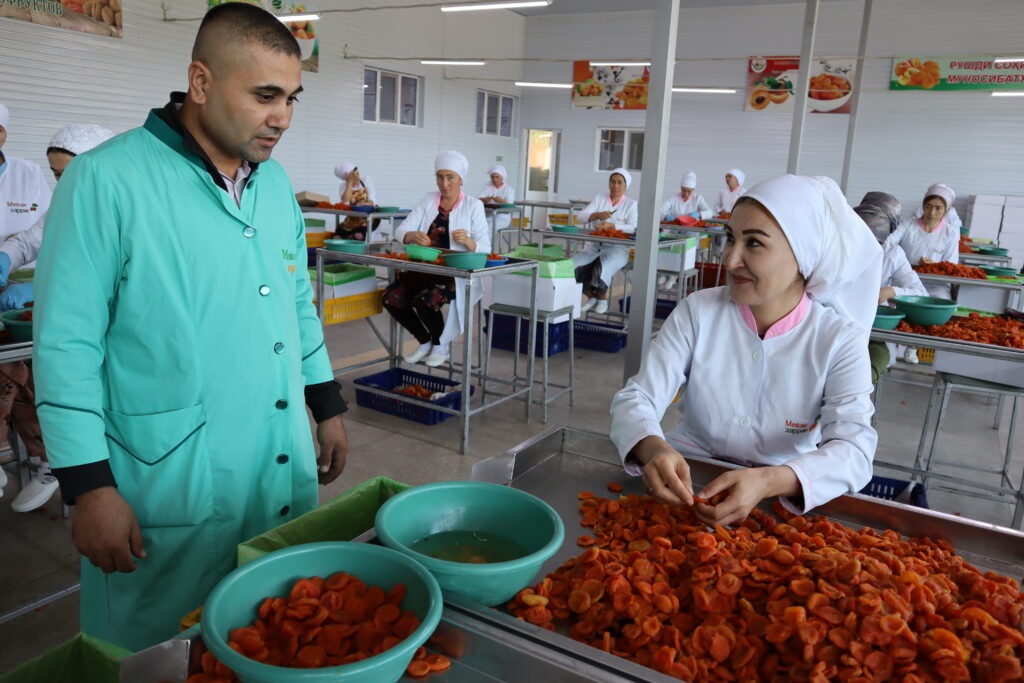
The whole work process has been modernized; factories were reconfigured to maximize processing flow.
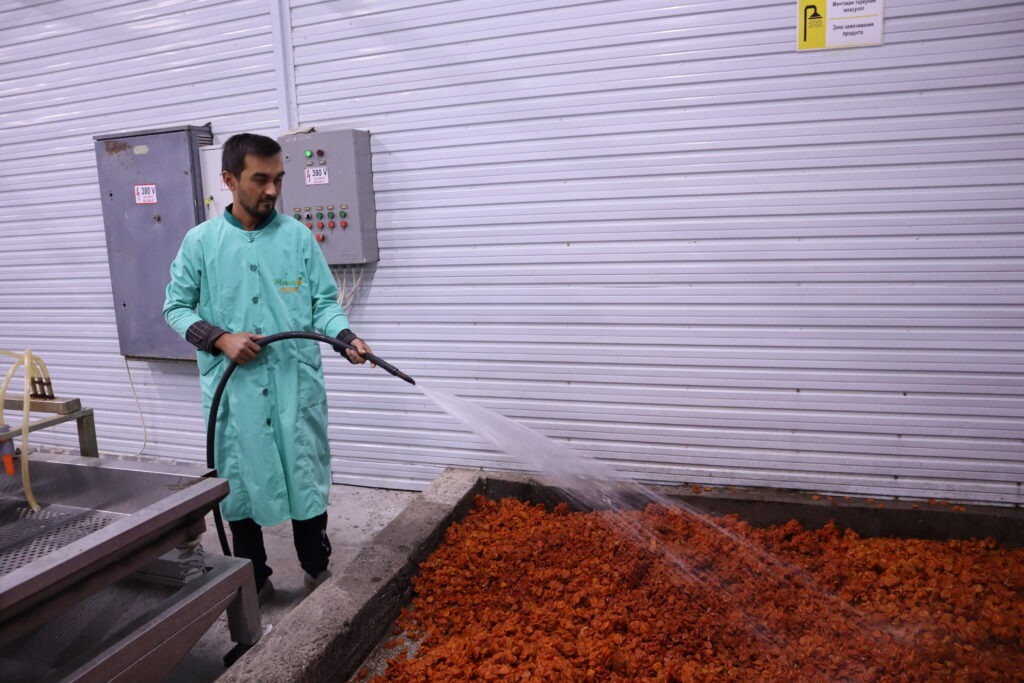
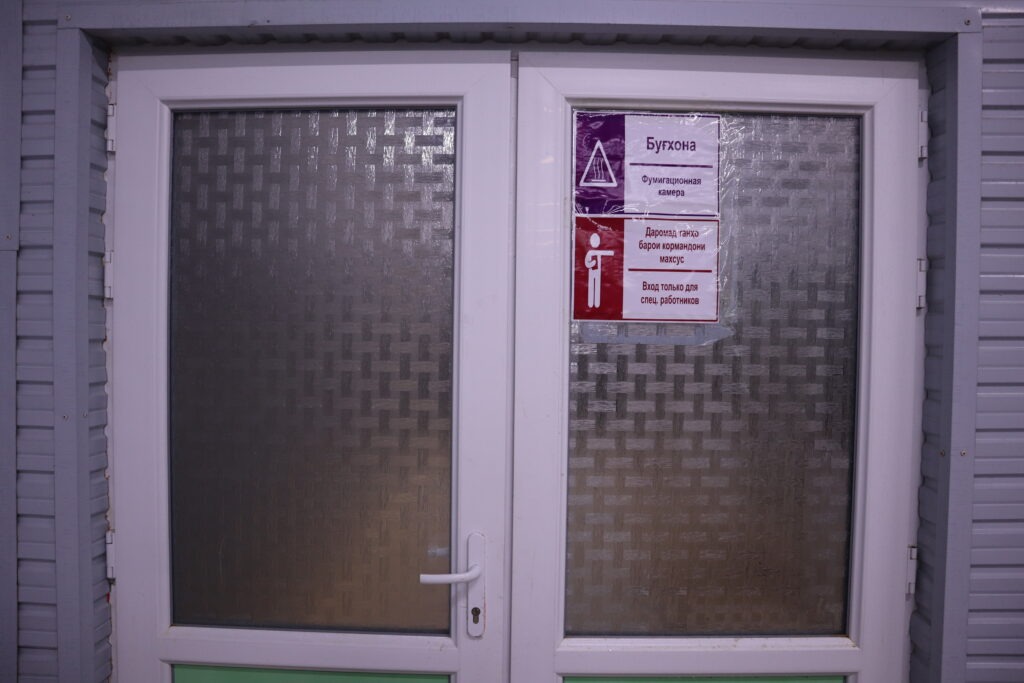
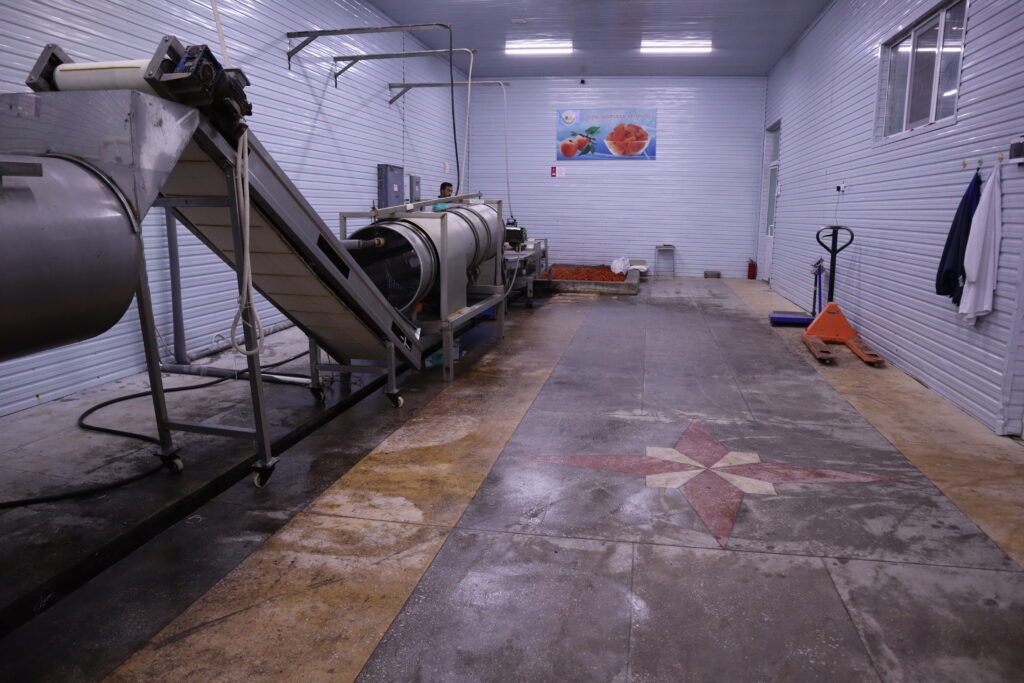
Months of hard work and perseverance finally paid off. The company’s operations were streamlined, the quality soared, as did the efficiency in meeting the market demand.
The workers also recognize the impact they have had on their day-to-day activities. Gulnora Alieva has been with the company for almost a decade. She notes, “We now have higher chairs and tables to work on and we are happy about that. My body now feels less stressed. I am glad that the company thinks of the health of its workers.”
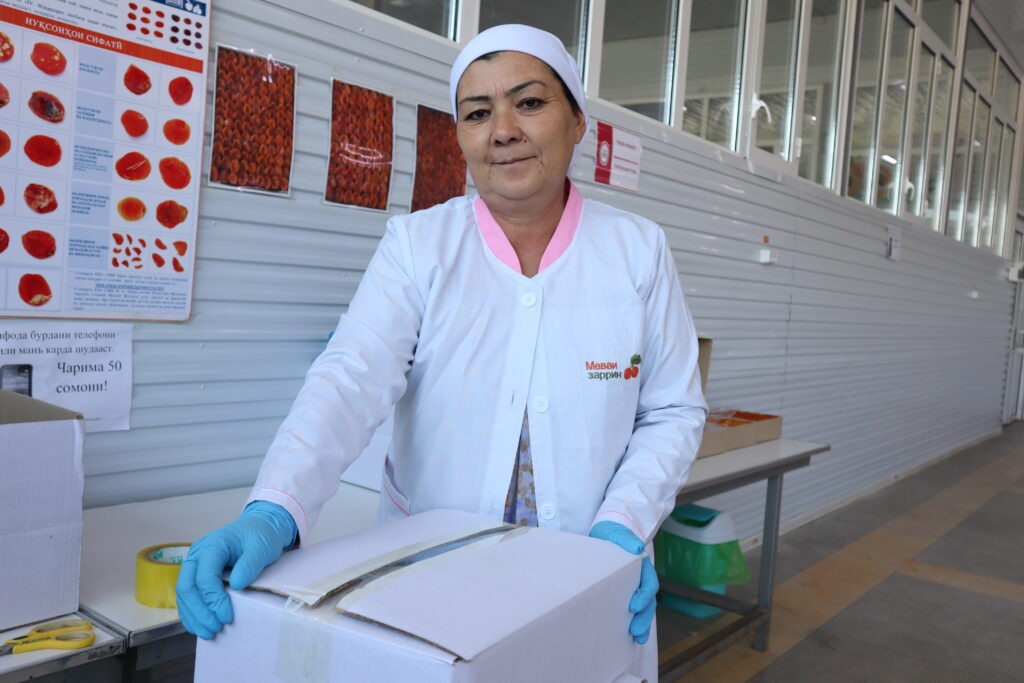
Her colleague, Hidoyat Rasulova, adds that these changes make local women stay motivated to further work, saying, “We have a new toilet outside of the main facility now, we have access to water for sanitation throughout the building, and we have free transport and lunch.”
The emblem of success
With the introduction of advanced processing techniques, the company has already experienced a significant increase in production capacity of 35 percent, a reduction in wastage of 70 percent, and an increase in exports of 30 percent. Ikhtiyor Alimov, MZ financial consultant, believes that all of this will enable the company to expand its market reach and optimize its operations. He says, “This may position MZ as a trusted and recognized brand in the industry and gain nationwide recognition for our superior quality and exceptional taste. We believe that with implementation of all recommendations, orders will flood in from customers far and wide, leading to substantial business growth and increased profitability”.
The achievement of this small dried fruits processing company with only 50 workers reverberates beyond its limited confines. It serves as an inspiration to other local businesses, igniting a sense of possibility and encouraging them to strive for excellence. There are more than 20 companies drying and processing fruits in Isfara employing about 1,000 people, mostly women. They mostly cooperate with each other rather than compete, as the market demand is higher than can be fulfilled.
As the market grows, it creates more employment opportunities for the local population, stimulating economic development in the region. The increased efficiency in processing apricots will positively influence the local apricot farmers, as the demand for fruits will increase alongside the processing capacity. This will boost the income and livelihoods of farmers in the surrounding areas.
Mohammad Shahroz Jalil, MDRD Chief of Party, is filled with a profound sense of pride reflecting on the project’s involvement in this transformative journey. He says: “Our small intervention is changing the course of not just one company, but an entire community’s future. This intervention has not only benefited MZ growth and profitability but will also have a positive impact on local businesses, the community, and apricot farmers. Together, they will unlock the true potential hidden within the apricot orchards and will bring prosperity to all involved—a true tale of success and achievement”.
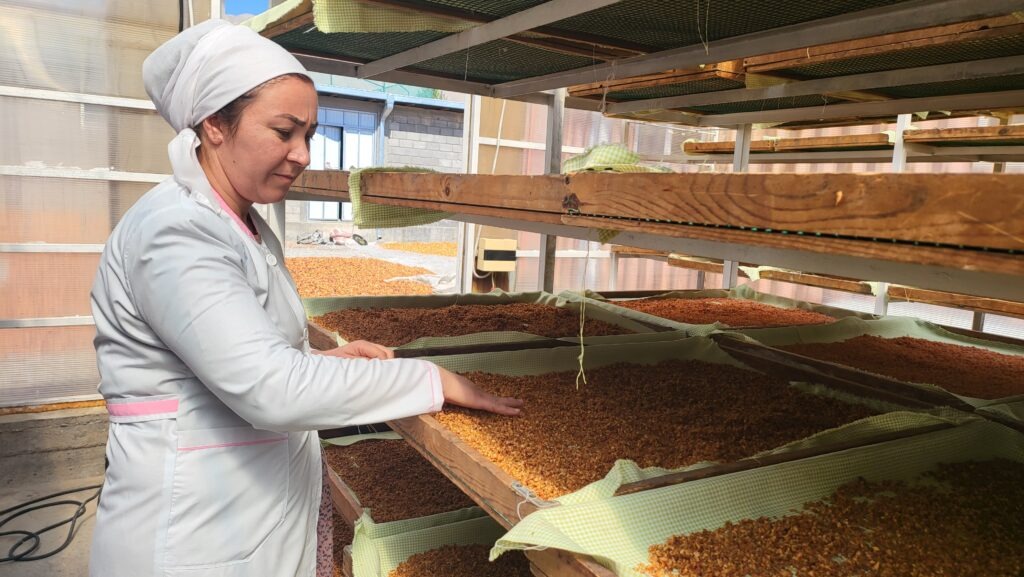
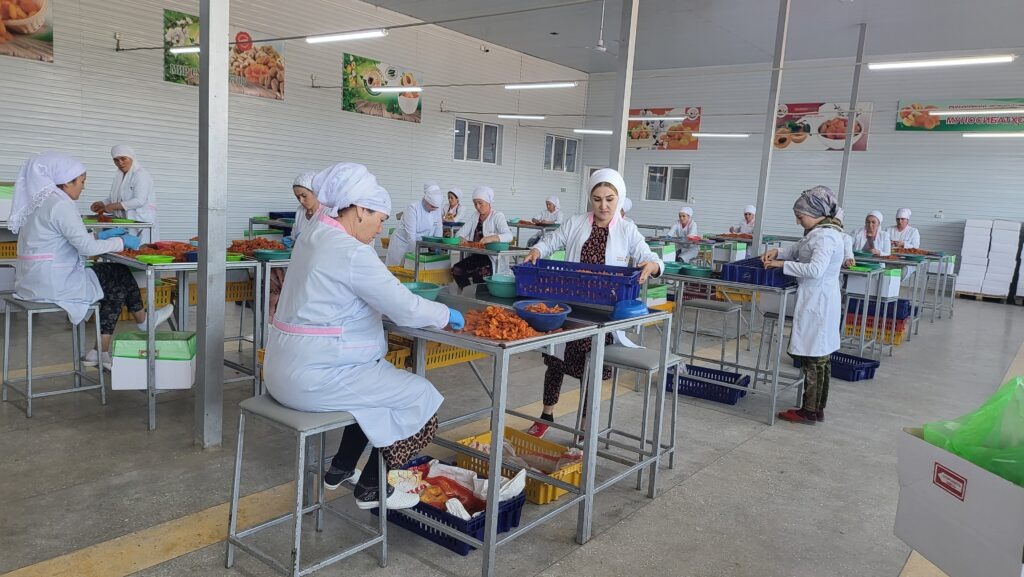
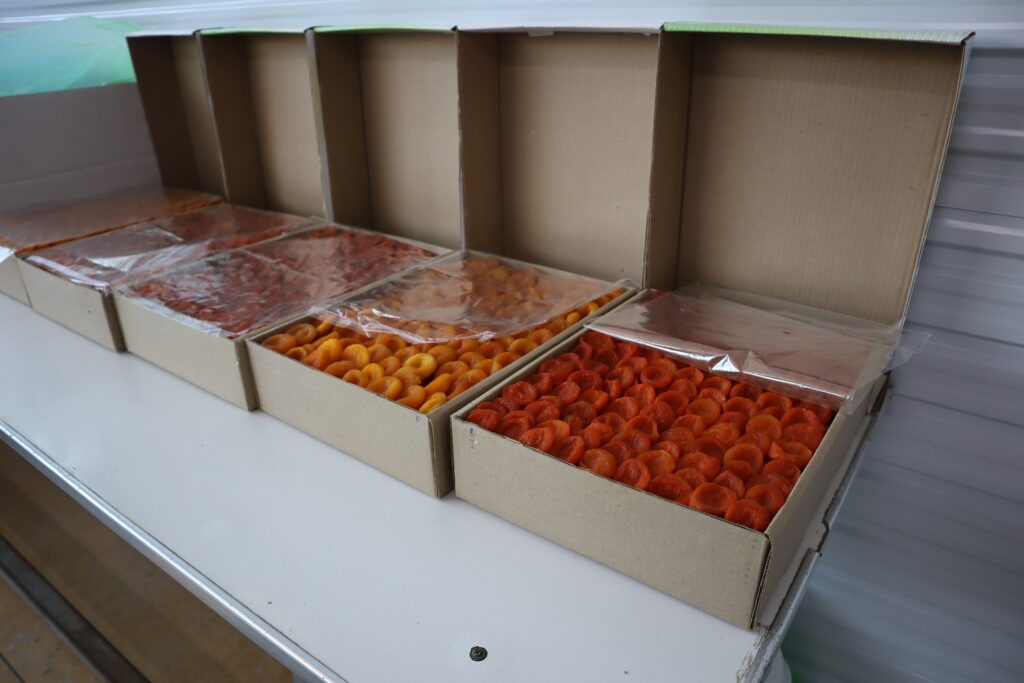
Learn more about the Market Driven Rural Development Activity.
Learn more about our work in Tajikistan.







